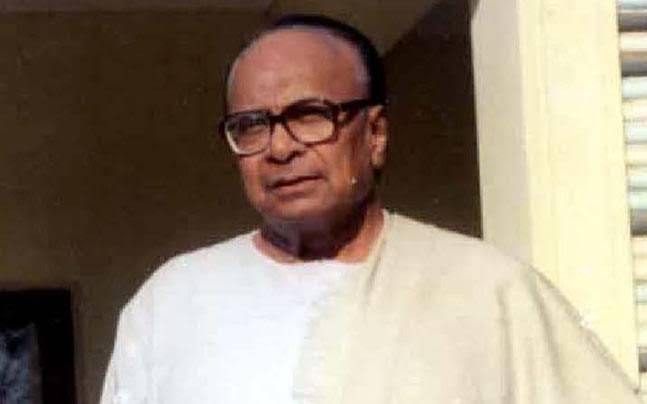Bhubaneswar: Every year Odisha celebrates the birthday of its beloved former Chief Minister late Biju Patnaik as the Panchayatiraj Diwas. It is in recognition to his unparalleled contribution to the strengthening of the Panchayatiraj system in Odisha. Being a leader in implementing the three tier system of governance in the country, Odisha today boasts itself as the most successful state in terms of truly devolving the powers into the hands of the local self governments.
Notwithstanding the fact that Panchayat is an age old system in Indian society with history dating back to many centuries, Odisha’s tryst with the modern day Panchayati Raj system can be traced back to the 1950s. The three-tier system of Panchayat Raj was introduced in Odisha in 1959 with the passing of the Panchayat Samiti and Zilla Parishad Acts. But prior to this, Panchayats were functioning at the village level under the Orissa Panchayat Act of 1948.
With the introduction of Panchayati Raj in Odisha, the Panchayats in the village level were now organically linked up with the Panchayat Samities and Zilla Parishads. As per the new Panchayat Samiti and Zilla Parishad Acts of 1959, elected Panchayat Samities and elected Zilla Parishads were formed in January 1961 and March 1961 respectively. This was the year when Biju Patnaik became the Chief Minister of Odisha. The foundations of today’s Panchayatiraj system in Odisha were laid by Biju Babu during this time with his great experiment of democratic decentralization of power and responsibility at the grassroots level.
During his second stint as the chief minister of Odisha, Biju Patnaik wanted to further strengthen the democracy by ensuring political participation of women in the three-tier Panchayat Raj Institutions. To make women partners in the decision making, he brought in the thirty-three percent reservation in the three-tier Panchayat Raj institutions in Odisha. The Odisha Assembly passed the three Panchayat Raj Bills, the Orissa Zilla Parishad Bill 1991, the Orissa Panchayat Samiti (amendment bill 1991) and the Orissa Gram Panchayat Bill 1991 in March 1991 to provide One third reservation for women including SC and ST women. This game changing move by Odisha set precedence in the country and the 73rd and 74th Constitution Amendment Acts of 1992 made similar provisions in rural and local bodies.
The far sighted decision of Biju Babu was followed by other states and Odisha became the first State to streamline the Panchayati Raj and Local-self government institutions to make democracy participatory.
Like father like son, Naveen Patnaik, after taking the mantle of the state in the year 2000, prioritized the strengthening of the Panchayatiraj System in the state. Under his able leadership, Odisha witnessed a true devolution of powers to the local self governments. The greatest tribute to Biju Babu was giving more empowerment to the village level organizations.
Taking a bold decision that had far reaching impact on electoral politics at the grassroots level, in the year 2011, Odisha Government made provisions for 50% reservation for women in Panchayat Raj institutions. The step was taken to achieve greater gender equality in the representation in panchyat raj bodies. Odisha was the first state to bring in such a legislation and it showed that Naveen Patnaik had the will to truly bring in transformation in the functioning of the Panchayatiraj System.
Since becoming the Chief Minister of Odisha, Naveen Patnaik has been steadily strengthening the Three Tier System. Regular elections to the Local Self Governments have ensured there is no hindrance in the governance process. Odisha Government has devolved 29 items to the Panchayats for making and implementing plans of economic development and social justice so that they could become institutions of Self Government.
Due to this Odisha has witnessed systematic implementation of Land Reforms, Land Consolidation, and Soil Conservation. Minor Irrigation projects, Water Management, and Watershed Development have become an important part of the Three Tier System. They also have a great say in poverty alleviation programmes, Education including Primary, and Secondary Schools, Marketing and Farm, Health and Sanitation, Maintenance of Community assets etc.
From a mere 459 Crore allocation in the Budget for the financial year 2004-05, the Panchayati Raj department has seen steady growth in financial allotment. In this years’ Budget, a provision of Rs 17,607 Crore has been made for the department.
A follower of Gandhji’s principles, Naveen Patnaik has always stood for the development of rural people. His transformation agenda for the three tier system has saw successful democratization of the village level governance and women have been the greatest beneficiaries of this. Today, women compete with the men in every sphere. Fifty percent reservation for women in the Panchayati Raj System has resulted in far more participation of women in political and governance affairs. The number of women participating in democratic institutions in the state is also increasing with time.


Comments are closed.